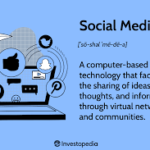In the online world, forums and social networks are two distinct platforms that facilitate communication and community engagement. This article aims to clarify the differences between forums and social networks, highlighting their unique features and purposes.

- Forums:
a. Definition: Forums, also known as discussion boards or message boards, are online platforms designed for open discussions and information sharing. Users can create threads or topics and participate in conversations by posting messages within those threads.
b. Structure and Organization: Forums are typically organized into various categories or sections based on different topics or interests. Within each category, users can create new threads or join existing discussions by posting replies.
c. User Interaction: Forums emphasize asynchronous communication, meaning users can engage in discussions at their convenience. Replies are displayed in chronological order, and users can quote or reference specific messages within the thread for context.
d. Community Focus: Forums foster a sense of community among like-minded individuals who share common interests or expertise. They provide a platform for users to seek advice, share experiences, and engage in in-depth discussions on specific topics.
e. Moderation: Forums often have moderators who enforce community guidelines, ensure respectful behavior, and maintain the quality of discussions. Moderators may have the authority to delete inappropriate posts, ban disruptive users, and manage overall forum organization.
- Social Networks:
a. Definition: Social networks are online platforms that facilitate connections, interactions, and content sharing among individuals or groups. Users create profiles, connect with others, and share various types of content, such as posts, photos, videos, and links.
b. Structure and Organization: Social networks typically feature news feeds or timelines where users see updates from their connections. Content is displayed based on algorithms that prioritize relevance and user engagement.
c. Real-Time Interaction: Social networks promote real-time interaction and immediate feedback. Users can like, comment on, and share posts, allowing for dynamic conversations and engagement among users.
d. Broad Range of Connections: Social networks focus on building connections with a diverse range of individuals, including friends, family, colleagues, acquaintances, and even public figures. Users can connect with others based on mutual interests, personal relationships, or professional connections.
e. Content Virality: Social networks thrive on content virality, where popular posts can quickly reach a large audience through likes, shares, and comments. This makes social networks effective for spreading information, news, and viral trends.
f. Privacy and Customization: Social networks provide options for users to customize their privacy settings, controlling the visibility of their content and the audience they share it with. Users can manage their connections and choose the level of access each connection has to their profile and content.
Forums and social networks serve distinct purposes in the online realm. Forums emphasize open discussions, community engagement, and asynchronous communication, making them ideal for in-depth conversations and sharing expertise. On the other hand, social networks prioritize real-time interactions, broad connections, content virality, and personal customization. Understanding these differences can help individuals and businesses determine which platform aligns best with their communication goals and audience engagement strategies.











































